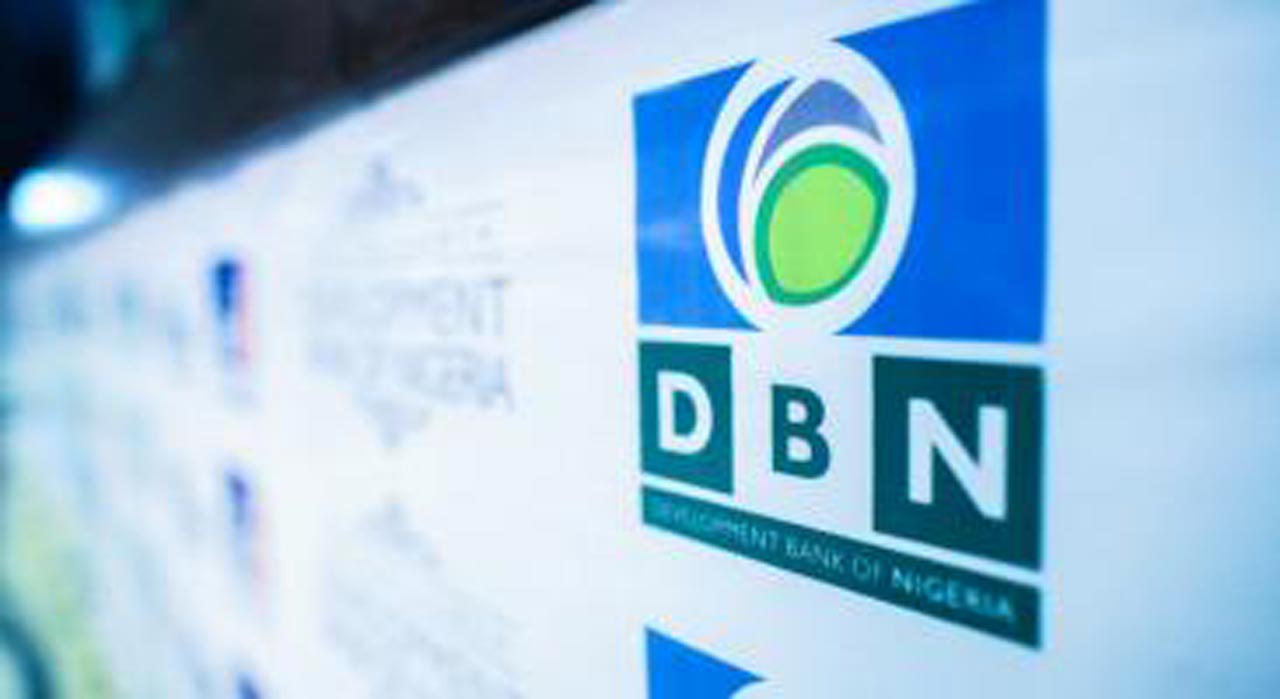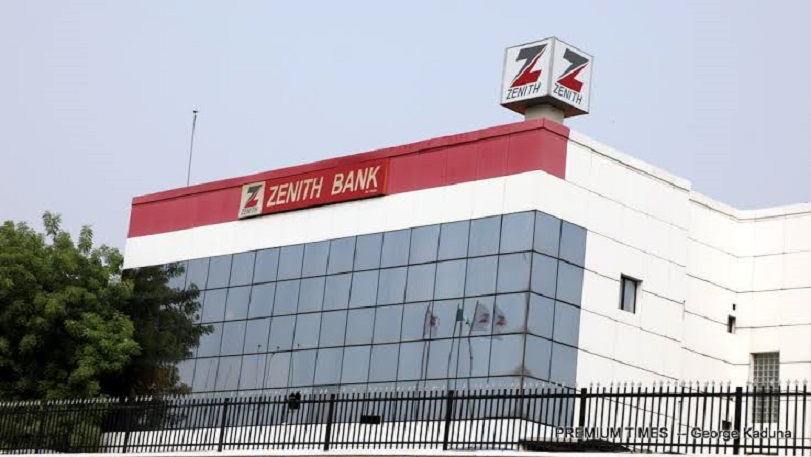Banking
Nigerian Banks Take Steps to Quicken Flow of Naira Notes, Deny Hoarding

By Dipo Olowookere
Commercial banks in Nigeria have denied the allegation that they were hoarding the new Naira notes and putting the citizens through untold hardship.
Since the Central Bank of Nigeria (CBN) announced an extension to swapping the old currency notes for the new ones on Sunday, January 29, 2023, for an additional 10 days, many Nigerians have been unable to access their funds in the bank.
On October 26, 2022, the CBN said it was redesigning the N200, N500, and N1,000 banknotes and gave Nigerians till January 31, 2023, to return the old notes.
Last week, there were reports of commercial banks in the country refusing to dispense the new currency notes to customers despite a central bank directive.
On Monday, February 6, 2023, the Association of Corporate Affairs Managers of Banks (ACAMB), in a statement signed by its president, Mr Rasheed Bolarinwa, absolved Nigerian banks from the crisis caused by the currency swap.
“Nigerian banks have invested an estimated total sum in excess of N100 billion in setting up and maintaining cutting-edge electronic channels over the past few years as part of the ongoing commitment to seamless customer experience and real-time digital financial transactions.
“From internet banking to mobile apps, Automated Teller Machines (ATMs), Point of Sales (PoS) merchants, mobile wallets, Unstructured Supplementary Service Data (USSD) codes, agents and digital franchises among others; not less than 80 per cent of Nigerians now enjoy one form of digital or cashless transaction or another, powered by investments by Nigerian banks,” a part of the statement said.
ACAMB, which reaffirmed its full support for the cashless policy of the CBN, said, “Nigerian banks are currently working with the CBN to ensure that customers have access to cash through ATMs and other channels as well as Over-The-Counter (OTC) in the banking halls.”
“ACAMB affirms without any equivocation that banks are not in any way hoarding or holding back naira notes or engaging in any act inimical to our avowed commitment to exciting customer experience.
“ATMs are being loaded every day, and cash is being paid as provided by the CBN, as regularly being checked by CBN Inspectors and other regulators including anti-graft agencies,” it added.
The group emphasised that, “In the past few hours, banks have taken additional measures to quicken the flow of naira notes. These measures, among others, include the deployment of extra technical supports for online payments, additional security at ATMs to ensure all-clock usage, technological back-up to reduce online downtime to the barest minimum, additional staff deployment to counters to attend to cash transactions, and timely interbank and inter-branch networking to bridge any gap.”
“We are confident that these measures, in addition to efforts by the regulatory CBN, will result in greater ease of access and cash liquidity,” the organisation assured, promising to “continue to engage all stakeholders and stimulate effective communications to foster greater understanding and forbearance.”
Banking
Goldman Sachs, IFC Partner Zenith Bank, Stanbic IBTC, Others to Empower Women Entrepreneurs

By Adedapo Adesanya
The International Finance Corporation (IFC) and Goldman Sachs have announced a new partnership with African banks, including Nigeria’s Zenith Bank and Stanbic IBTC Nigeria to support the Goldman Sachs 10,000 Women initiative, a joint programme launched in 2008 to provide access to capital and training for women entrepreneurs globally.
The two Nigerian banks are part of nine financial institutions from across Africa which have agreed to join the 10,000 Women initiative committing to leverage the business education and skills tools the programme provides to create more opportunities for women entrepreneurs across the continent by providing access to business education.
Others banks include Stanbic Bank Kenya, Ecobank Kenya, Ecobank Cote d’Ivoire, Equity Bank Group, Banco Millenium Atlantico – Angola, Baobab Group, and Orange Bank.
Speaking on this, Ms Charlotte Keenan, Managing Director at Goldman Sachs said – “10,000 Women has had a powerful impact to date, but we know that there are more women to reach and more potential to be realized.
“We are delighted to partner with IFC to supercharge the growth of women-owned businesses across Africa, and mainstream lending to female business leaders. We remain committed to supporting entrepreneurs with the access to education and capital that they need to scale.”
Since 2008, the 10,000 Women initiative has provided access to capital and business training to more than 200,000 women in 150 countries.
“This expanded initiative marks a significant step forward in creating equitable economic opportunities for women in Africa, enabling them to build stronger, more resilient businesses and to realize their entrepreneurial goals,” said Ms Nathalie Kouassi Akon, IFC’s Global Director for Gender and Economic Inclusion.
Goldman Sachs’ 10,000 Women initiative complements the Women Entrepreneurs Opportunity Facility (WEOF), launched in 2014 by Goldman Sachs and IFC as the first-of-its-kind global facility dedicated to expanding access to capital for women entrepreneurs in emerging markets.
Banking
Development Bank of Nigeria Wins Financial Inclusion Leadership Award

By Aduragbemi Omiyale
In recognition of its unwavering commitment to fostering access to financing for Nigerian micro, small and medium enterprises (MSMEs), Development Bank of Nigeria Plc has been rewarded with the Financial Inclusion Leadership Award at the Champions of Inclusion Nigeria Financial Inclusion Awards.
This was at the 2024 International Financial Inclusion Conference (IFIC) organised by the Central Bank of Nigeria (CBN) in collaboration with the World Bank and other stakeholders.
The chief executive of the lender, Mr Tony Okpanachi, said the recognition affirms the company’s efforts in expanding access to financial services for MSMEs in Nigeria.
“We are honoured to receive the Financial Inclusion Leadership Award, which is a testament to our bank’s commitment to expanding access to financial services for all Nigerians. This award recognises our efforts to bridge the financial inclusion gap, particularly for a priority sector like the MSMEs.
“Additionally, this award is a validation of our strategic focus on driving financial inclusion for small businesses, and we are proud to be at the forefront of this initiative that drives that. We will continue to innovate and expand our financial inclusion programmes, ensuring that more Nigerian small and startup businesses have access to services,” he stated.
On his part, the Chief Operating Officer of DBN, Mr Bonaventure Okhaimo, said the accolade demonstrates the firm’s dedication to driving financial inclusion and economic growth in Nigeria.
“This award acknowledges our Bank’s innovative approach to widening opportunities for MSMEs in Nigeria to grow and scale their businesses,” he said.
“This award will motivate us to continue pushing the boundaries of financial inclusion, exploring more innovative solutions and partnerships to expand our reach and impact.
“We are committed to ensuring that more small businesses and startup enterprises in Nigeria have access to financial services, this award will further inspire us to accelerate our efforts in this regard,” he stated.
Banking
The Banker Magazine Declares Zenith Bank as Bank of the Year in Nigeria

By Modupe Gbadeyanka
The Banker Magazine of the Financial Times Group in the United Kingdom has announced Zenith Bank Plc as Bank of the Year, Nigeria.
At the Banker’s Bank of the Year Awards 2024 held on in London on Wednesday, December 4, 2024, it was stated that Nigerian lender clinched the award for its strong management, sound business model and strategy, and approach to sustainability and ESG banking practices.
The chief executive of Zenith Bank, Ms Adaora Umeoji, described the recognition as a “testament to the unwavering trust and loyalty of our esteemed customers, the unparalleled leadership and guidance of the board and management as well as the hard work and dedication of our staff.”
She said, “It also reflects our bank’s steadfast commitment to delivering excellent services to our customers and contributing to the growth and development of the Nigerian economy.”
“We will continue to invest in innovative technologies, expand our range of products and services, and maintain our commitment to exceptional customer service in order to sustain our position as Nigeria’s Number One Bank,” Ms Umeoji assured.
The Banker’s Bank of the Year accolade is among the most coveted and widely regarded award in the banking industry.
Often contested by the world’s leading financial institutions, the winners span across Africa, Asia-Pacific, Central & Eastern Europe, Latin America, the Middle East, North America and Western Europe.
Recall that last month, Zenith Bank commissioned its branch in Paris, France following the granting of the final approval by the country’s banking regulator, the Autorité de ContrôlePrudentiel et de Résolution (ACPR).
This is part of the bank’s global expansion strategy, and its commitment to serving clients wherever their businesses are around the world.
Zenith Bank has continued to earn numerous awards, with this latest accolade coming on the heels of several recognitions, including being the Number One Bank in Nigeria by Tier-1 Capital for the 15th consecutive year in the 2024 Top 1000 World Banks Ranking, published by The Banker Magazine.
-

 Feature/OPED5 years ago
Feature/OPED5 years agoDavos was Different this year
-
Travel/Tourism8 years ago
Lagos Seals Western Lodge Hotel In Ikorodu
-

 Showbiz2 years ago
Showbiz2 years agoEstranged Lover Releases Videos of Empress Njamah Bathing
-

 Banking6 years ago
Banking6 years agoSort Codes of GTBank Branches in Nigeria
-

 Economy2 years ago
Economy2 years agoSubsidy Removal: CNG at N130 Per Litre Cheaper Than Petrol—IPMAN
-

 Banking2 years ago
Banking2 years agoFirst Bank Announces Planned Downtime
-

 Sports2 years ago
Sports2 years agoHighest Paid Nigerian Footballer – How Much Do Nigerian Footballers Earn
-

 Technology4 years ago
Technology4 years agoHow To Link Your MTN, Airtel, Glo, 9mobile Lines to NIN


















